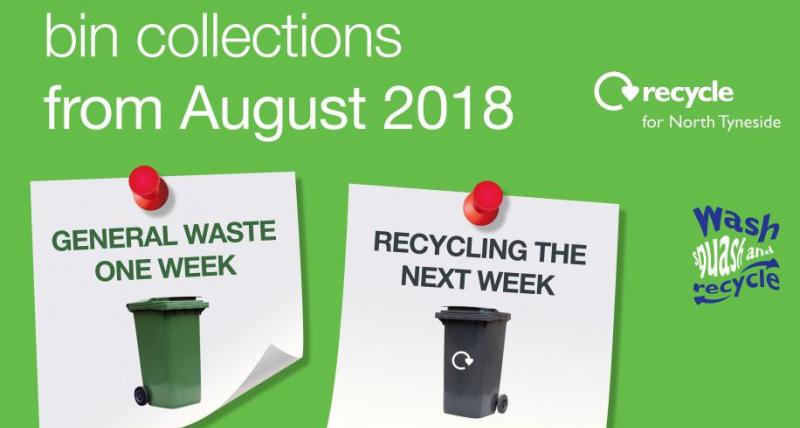
The cabinet of North Tyneside Council has given formal approval to begin alternate weekly bin collections at the end of August - and has also agreed that larger bins can be issued in 'exceptional circumstances'.
The borough is one of the few remaining places in the country where people still have their household waste collected on a weekly basis.
The council believes that, with the proper support and advice, most households should be able to manage under the new arrangements and the new service will significantly improve recycling rates and reduce waste.
In response to residents' concerns about not having sufficient bin capacity, Cabinet has also agreed exception criteria whereby a larger bin can be issued to households of six or more people, or to residents with a genuine medical need.
Qualifying households will be able to apply for a larger bin in August, prior to the introduction of alternate weekly collections, by visiting northtyneside.gov.uk and will be required to provide documentation to support their request.
Households who do not meet the exception criteria will be able to purchase an additional recycling bin at a cost of £20.
The change to bin collections was approved as part of the council’s 2018/19 budget proposals earlier this year and forms part of the authority’s plan for tackling waste in North Tyneside.
As well as the environmental case for change, the decision was also shaped by the end of a £3.4m Government grant to support weekly collections in North Tyneside, which came to an end in 2017.
Councillor Carl Johnson, cabinet member for the environment, said: “That money has run out and we have had look at different ways to manage our waste with the financial resources we have. Another important factor is that waste disposal costs have risen dramatically in the last 10 years.
“North Tyneside Council has the worst recycling rate in Tyne and Wear and it’s no coincidence that we are the only local authority in Tyne and Wear which still operates a weekly collection of household waste.
“The experience of other local authorities is that recycling rates increase and costs associated with waste disposal reduce.
“Through our budget engagement programme, many residents told us they would welcome alternate weekly collections, especially if it was accompanied by more opportunities to recycle.
“Therefore, for both environmental and financial reasons, it’s extremely important that we maximise the shift from green bins to grey bins.”
Residents will receive a new collection calendar in July.
